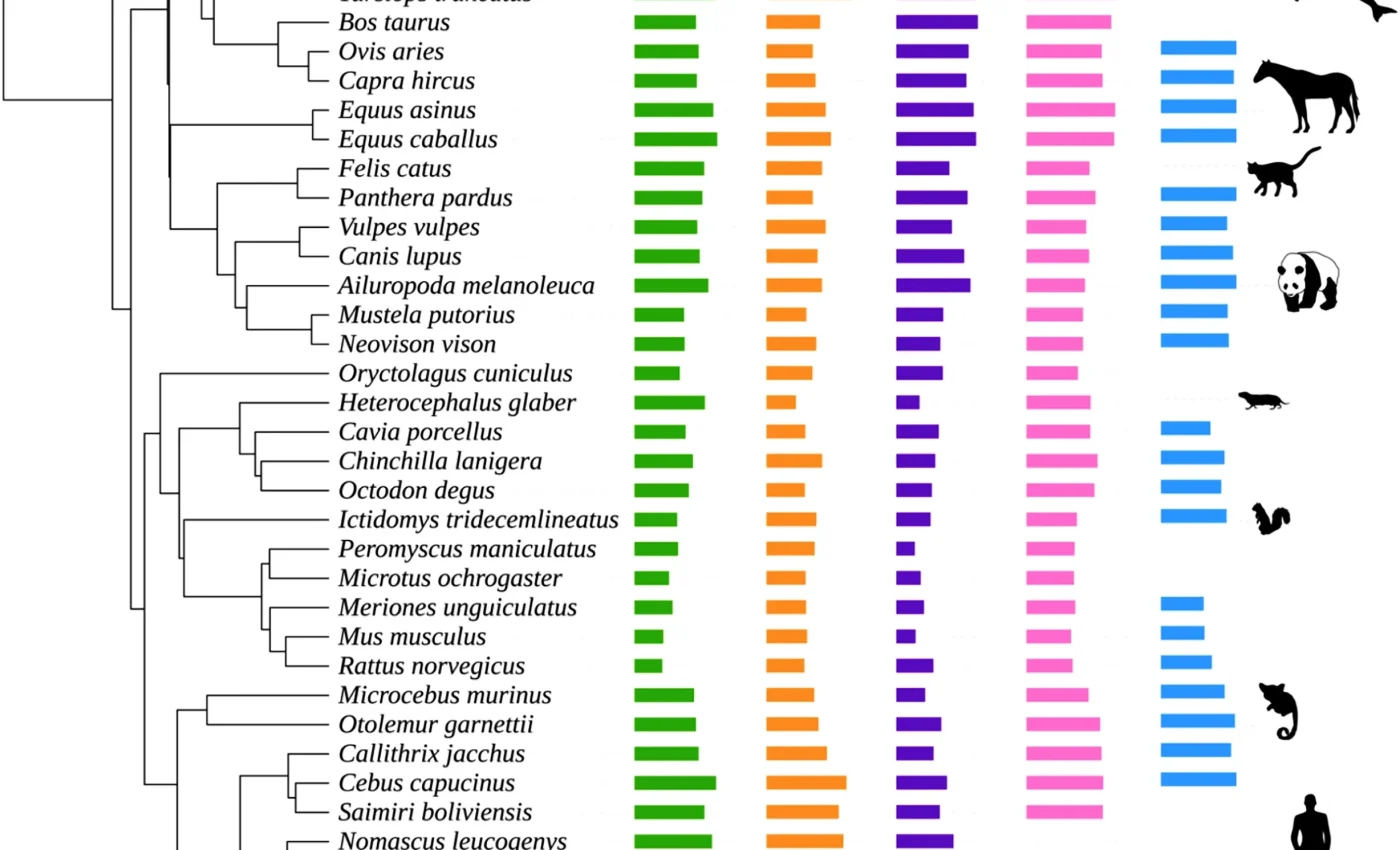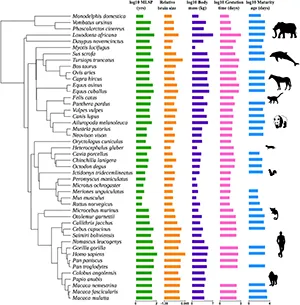
Why do some animals live just days while others live thousands of years? Scientists think they know
Bowhead whales can live more than 200 years. Tiny shrews barely make it a year. Some sea sponge species are over 15,000 years old. That gap raises a straightforward question: what’s different at the biological level?
Instead of hunting for a single “longevity gene,” researchers looked for patterns across sets of related genes that might scale up in species with long lives.
Biologists call these sets “gene families.” Over evolutionary time, genes sometimes duplicate. Extra copies can shift how strongly a function shows up in the body – a higher “dose” – or create room for small tweaks that help cells respond more flexibly.
Studying lifespan potential
Dr. Benjamin Padilla-Morales, from the Milner Center for Evolution and the University of Bath’s Department of Life Sciences, was the first author.
The study compared 46 mammalian species with high-quality, well-curated genomes.
For each species, the team used maximum lifespan potential (MLSP), defined as the longest confirmed age any individual of that species has reached, and matched it to the sizes of thousands of gene families.
They also accounted for traits that often track with lifespan, including body size, brain size relative to body size, how long pregnancy lasts, and when animals first reproduce.
This design allowed them to ask a clear question: across mammals, do certain families get larger in species that live longer, and if so, which ones?
Immune system and lifespan potential
The strongest signal centered on the immune system. The gene families that tended to be larger in long-lived mammals were involved in immune surveillance and clearance.
These functions help detect threats and clear cellular debris that accumulates with age.
The immune system does more than fight infections. It also removes damaged or “senescent” cells that stop dividing and release stress signals, and it helps identify early cancer cells before they grow out of control.
As an animal ages, those jobs matter more. Expanding the families that handle them can help tissues maintain stability over many decades.
Brain size link plays a role
Across mammals, species with bigger brains for their body size often live longer. In this study, many of the same gene families that grow with lifespan also grow with relative brain size.
A large brain uses substantial energy and oxygen and produces more metabolic byproducts. Extra immune and housekeeping capacity supports this load and helps keep neural tissue stable.
The link implies a shared genetic background: immune-related expansions may support both long life and the demands of a large, energy-hungry brain.
Padilla-Morales explained that scientists have long known relative brain size is linked to longevity. He said the two traits share an evolutionary path, with larger brains offering potential behavioral advantages.
He also noted that bigger-brained species don’t just live longer because of ecological factors. Their genomes show parallel expansions in genes tied to survival and maintenance.
“This shows that brain size and immune resilience seem to have walked hand-in-hand in the evolutionary journey toward longer lives,” Padilla-Morales explained.
Lifespan potential – what doesn’t matter
Body mass itself – big versus small – did not account for the gene-family trends once other factors were included.
Life-history timings such as gestation length and age at first reproduction didn’t drive the expansions either.
Those traits do correlate with lifespan in general, but they weren’t behind which gene families got larger in this analysis.
The team checked a basic concern: maybe long-lived species just carry more genes overall. They do not. The pattern wasn’t a blanket “more genes everywhere.” It was specific to certain families tied to maintenance and defense.

Humans and longevity genes
The researchers looked at how these longevity-linked genes behave in people. Human versions tend to be more active and produce more transcript variants – different “edits” of the same gene that yield slightly different proteins.
That diversity gives cells more ways to fine-tune responses, which fits the idea of a vigilant, flexible maintenance system.
The team compared their gene lists with earlier aging databases. The overlap wasn’t perfect, which is common, but the functions aligned.
Prior work points to DNA damage responses, inflammation control, and programmed cell death (apoptosis). The expanded families in this study cluster within the same biological pathways.
Maximum lifespan potential limitations
This is not “the cure for aging.” The results show correlations, not causes. Evolution is complicated, and a gene family can expand for one reason and later take on another role.
Maximum lifespan potential is a record-holder measure, not an average, and records can reflect limited data or unusual individuals.
Even with those limits, the same immune-related signal shows up across dozens of species, and that deserves attention. It shifts the focus from a single switch to scaled-up maintenance.
Future of species lifespan research
Overall, the findings point to systems-level resilience. Long-lived mammals don’t rely on a magic change in metabolism.
They tend to carry more copies of genes that help detect problems early, remove damaged cells, and keep tissues – especially the brain – stable for many years.
For anyone thinking about healthy aging, this suggests a practical target. Immune surveillance and cellular housekeeping may be as important as tweaking metabolism or chasing one-off genetic fixes.
It’s a reminder that evolution didn’t grant immortality. It boosted the systems that prevent small problems from turning into big ones, and it did so in ways we can measure – across 46 species, using maximum lifespan potential, and with clear links to brain size and immune function.
The study is published in the journal Scientific Reports.
—–
Like what you read? Subscribe to our newsletter for engaging articles, exclusive content, and the latest updates.
Check us out on EarthSnap, a free app brought to you by Eric Ralls and Earth.com.
—–













